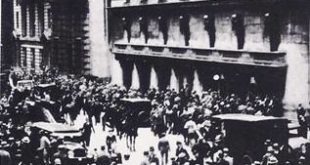Although the cold war was the most important fact in the politics of the post-war world, few persons could have foreseen that it would lead to fighting in the small, remote country of Korea. Yet, as small and remote as it was, Korea had a strategic location. It was near three large powers — Russia, China and Japan — and the Japanese said it “points like a dagger at the heart of our country.” The Japanese won control of Korea in the Russo-Japanese War and by 1905 they ruled it as part of their empire. During World War II, the Allies promised that “in due course Korea shall become free and independent.” When Japan surrendered, they agreed that Russian troops would occupy Korea north of the thirty-eighth parallel and American troops would occupy Korea south of the thirty-eighth parallel. A provisional government would then be set up and after a period of no longer than five years, Korea would govern itself as an independent nation. The occupation of Korea was carried out as it had been planned, but the United States and the Soviet Union could not agree on a provisional government. Each set up a provisional government friendly to itself and in 1947 the United States brought the dispute before the United Nations General Assembly. The Assembly decided to hold elections in Korea, but the Soviet Union refused to allow United Nations representatives to enter its occupation zone. Elections were held outside the Russian zone and in 1948 the Korean Republic was established in South Korea. The city of Seoul was made the capital and Syngman Rhee was elected president. Thirty-two nations, including the United States, recognized the new government; the Russians and “their supporters did not. Instead, the Soviet Union helped to set up a new and separate …
Read More »Victory in the Pacific 1941 – 1945
On June 25, 1940, the Japanese war minister said, “The present international situation is developing in a manner advantageous to Japan’s national policy. We should not miss the present opportunity. . . Japan’s national policy was scarcely a secret. It had already linked itself by treaty to the aggressor nations of Germany and Italy – for several years it had been fighting an undeclared war against China. Although Chinese guerrilla forces were fighting back the Japanese controlled most of the Chinese railroads and held such cities as Peiping, Shanghai and Canton. They planned to establish something they called the “Greater East Asia Co-Prosperity Sphere” –actually a vast empire that would take in the South Seas as well as East Asia, an empire ruled by the Japanese. In July of 1941, as another step in carrying out their plan, they occupied Indochina. In trying to build up its new empire, however, Japan ran into certain difficulties. The Chinese, led by Chiang K’ai-shek were getting more and more aid from the United States and Britain. Even more important, Japan depended on trade with the United States and Britain for its war materials, especially scrap metal and oil. It was a serious blow when, in 1941, the United States and Britain “froze” all Japanese assets in the two countries, bringing trade to a stop. The Netherlands East Indies, which had been supplying oil to Japan, soon took the same action. In October, General Hideki Tojo became premier of Japan and the militarists were in full control of the government. Tojo sent a special envoy to Washington to negotiate with the United States. Japan demanded, among other things, that the United States stop all aid to China and again trade freely with Japan. The United States insisted that Japan withdraw its forces from China …
Read More »Panic in Wall Street 1929-1932
AS MILLIONS of Americans hurried to work on the morning of October 24, 1929, it seemed like the start of an ordinary day. It seemed just as ordinary to the brokers and bankers who were entering their offices on New York’s Wall Street. True, the prices of stocks had been falling for several days, but that was nothing to worry about. There were bound to be ups and downs in the stock market and prices would surely rise again. For never before had the United States known such prosperity as it did in the 1920’s. Herbert Hoover, who had become President seven months before, had said, “We in America are nearer to the final triumph over poverty than ever before in the history of any land. . . . We have not reached the goal, but given a chance to go forward with the policies of the last eight years, we shall soon with the help of God be in sight of the day when poverty will be banished from this nation.” Many Americans agreed with him. They invested their savings in stocks and just as they hoped, the price of stocks rose. To make even more money, they bought stocks on margin — that is, on credit. They knew that they could be wiped out if stocks took a sudden tumble, but why should that happen? The richest men in the country said it wouldn’t and if they didn’t know, who did? The country was booming and anyone who didn’t get rich was a fool. More and more Americans bought stocks and prices went higher and higher — until October of 1929. As the prices of stocks began to fall, people stopped buying and began to sell. The more they sold, the lower prices fell; the lower prices fell, …
Read More »


